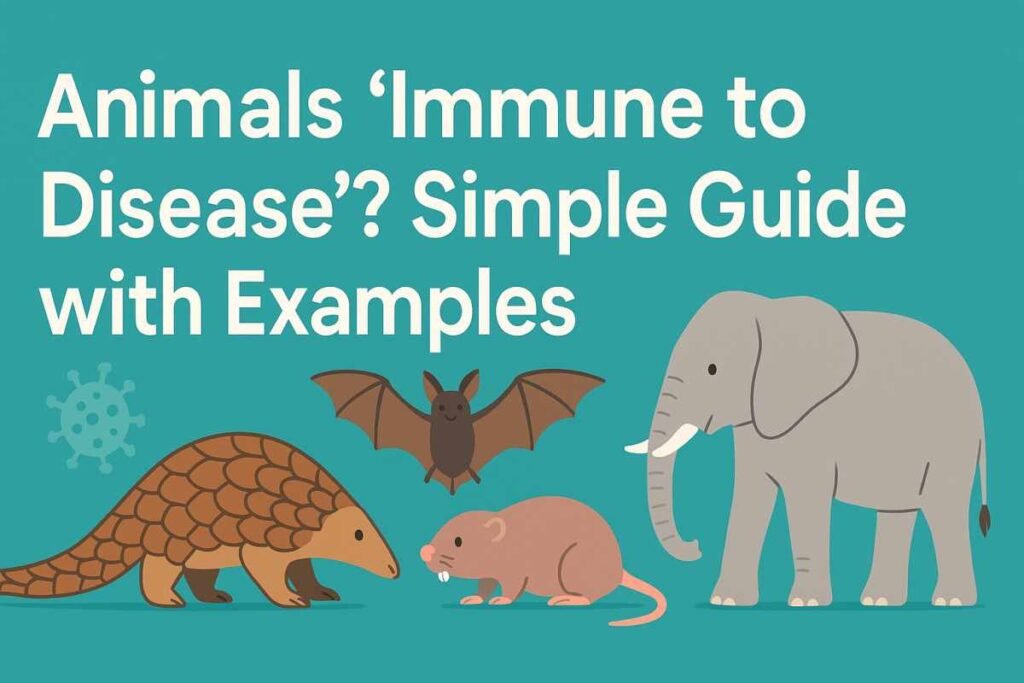Are there animals immune to disease?
Short answer: no animal is immune to every disease.
Some animals are just better at resisting certain germs, or tolerating infection without getting very sick.
Two key ideas
- Resistance: the body stops or slows the germ.
- Tolerance: the body limits damage and inflammation so the animal doesn’t get very sick, even if the germ is there.
Easy examples
1) Bats: stay calm against viruses
Bats can carry many viruses yet often don’t get very sick. Their immune system keeps inflammation low while still fighting viruses. This “cool” response helps them avoid severe illness.
2) Naked mole-rats: rare cancer cases
These small rodents hardly ever get cancer. One reason is a special, very thick form of hyaluronan in their tissues that helps stop tumors from growing.
3) Elephants: extra anti-cancer protection
Elephants have many copies of a key tumor-fighting gene (TP53). If a cell is damaged, elephants are quick to kill the bad cell, which likely lowers cancer risk.
Read also: Tumor Markers: What They Are and How They’re Used to Diagnose and Monitor Cancer
4) Some opossums: resistant to certain snake venoms
A few opossum species make natural venom blockers in their blood, which can protect them from bites by certain vipers. This is not protection against all snakes, only some.
5) Crocodiles/Alligators: strong germ-fighting peptides
They have powerful antimicrobial peptides in their blood that can kill bacteria and fungi. This helps them in dirty water, though they can still get sick.
Important: these are specific strengths, not total immunity.
Why this matters to people
- New medicines: Bat research helps scientists design treatments that reduce dangerous inflammation in severe infections.
- Cancer prevention: Studies on elephants and naked mole-rats may inspire better anti-cancer strategies.
- New antibiotics: Crocodile peptides could guide future antimicrobials.
Quick FAQ
Are any animals totally immune to disease?
No. Some have resistance or tolerance to certain problems, but none are safe from everything.
Can humans copy these tricks?
Not directly. But studying these animals gives clues for new drugs, vaccines, and tests. It takes time and more research.
Simple takeaway
“Animals immune to disease” is a myth. What we really see is smart biology: some species resist germs well, others tolerate infection without much damage. Learning how they do this can help us treat infections and fight cancer better in the future.
Source: PinterPandai, Nature, PubMed Central, ScienceDirect, PNAS (Viviane Callier), National Geographic
Brucellosis is an animal disease that can infect humans, causing fevers to fluctuate

